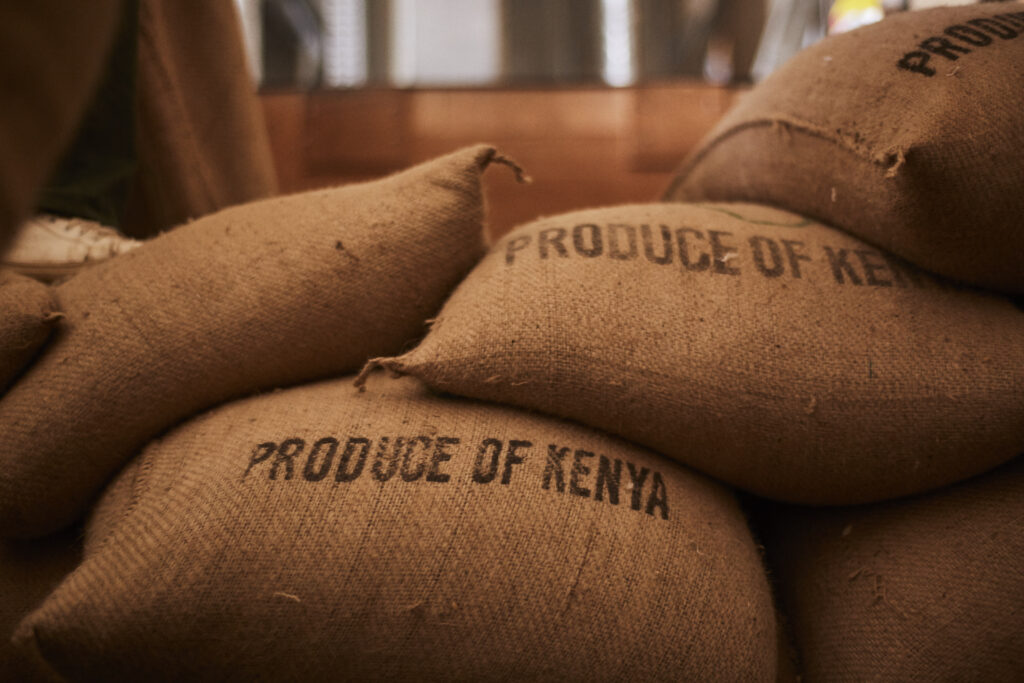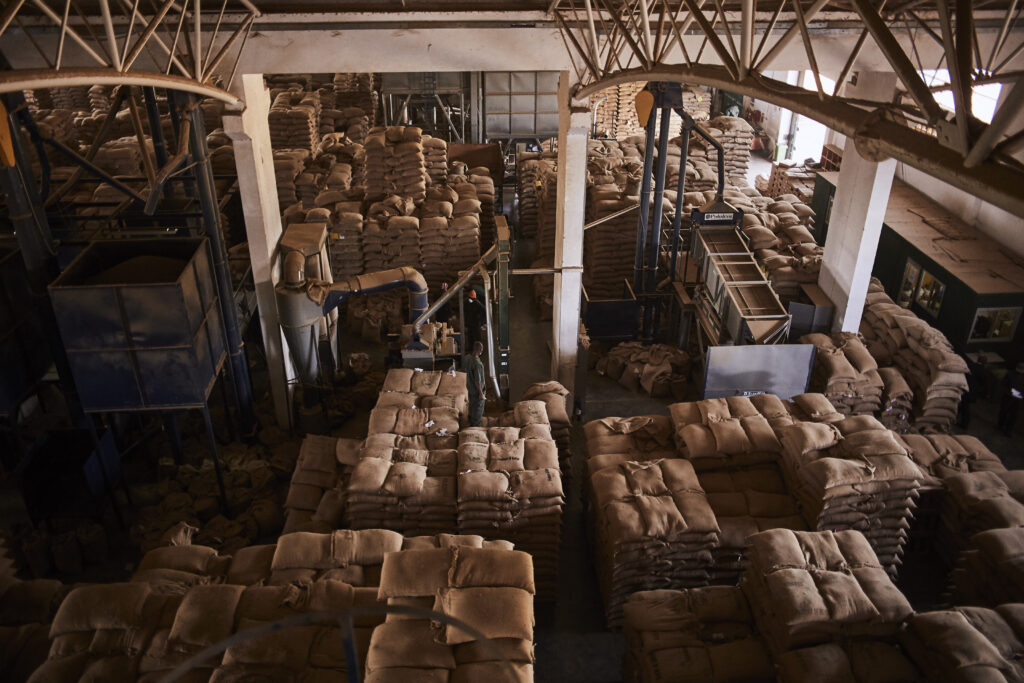The internal market in Kenya is undergoing a significant transformation due to a series of new regulations implemented by the government. This shift is shaping how coffee is bought, sold, and milled in the country, impacting various stakeholders and leading to both challenges and opportunities within the industry.
Previously, exporters could either purchase coffee through the auction, or offer a price to cooperatives via marketing agents who represented the given cooperative. The cooperative maintained ownership of a coffee, while the milling process was set as a service at a fixed fee. The marketing agents earned a margin based on sales.
In the previous market structure, the marketing agents and mills that represented the majority of the crop, were typically affiliated with multinational companies that had invested in establishing a presence across the entire supply chain.
Now, the role of marketing agents has been replaced by brokers who require a specific licence with limited availability. These regulations were implemented to avoid concentration of operations under multinational entities, with vertical integration being discouraged.

Market Shifts
From our experience in accessing top quality Kenyan coffees, so far, this impacts the cooperatives, farmers, and exporters much more than the end buyers or consumers.
With the absence of marketing agents and the change in allocation of milling licences, exporters have to wait for coffees to enter the auction before getting samples and making purchases. This means they can’t buy coffee directly from cooperatives, or get access to early samples through mills or marketing agents they were previously affiliated with.
For producers and cooperatives, the inability to directly sell to exporters removes a crucial avenue to market their products.
When traders buy at auction, they sample a coffee, decide if they want to buy it, and then the cooperative needs to register an invoice following the regulations and system that has newly been implemented. The trader needs to pay this invoice and legally can only do so if the invoice is registered in the system according to the regulations. The warrants for the ownership of the coffee can only be issued to them after this payment is complete. After that, they can collect the coffee from the warehouse, and re-sample it upon agreeing to the purchase, ensuring that it matches the initially sampled quality.
Although the process has changed a bit, this still allows our suppliers to make sure that they can secure the quality they need. After committing to coffees that have entered the auction, they can subsequently provide us, as the importer, with samples of their already purchased coffees (which we call offer samples).
In other words, we still have access to samples of the highest-quality coffee we have always committed to purchasing. The change that we experience is that we do not see offer samples as early on in the harvest, and we do not get as broad of an overview of the quality of the harvest as we would have previously.

Milling Challenges
Milling is now almost exclusively conducted through government-owned mills, as 90% of mills who have been given licenses are government owned. This is a measure intended to prevent concentration under multinational entities.
Initially, this decision caused some delays due to their lack of capacity and experience in milling the volumes now expected of them, and mainly because the government-owned mills were only operating for 12 hours per day (whereas privately-owned mills would operate 24/7).
However, subsequent adjustments, including 24-hour operation, have facilitated the quicker milling of crops, allowing coffees to come into the auction quicker than anticipated at the beginning of the harvest.
Moving Forward
As the situation progresses, the evolution of the relationship between exporters and cooperatives is imperative. Exporters rely on cooperatives for insight into the harvest, their production, and status of the coffees, which can help them plan their volumes and quality decisions in time for the auction.
While internal market dynamics are shifting, the industry’s commitment to quality and the relationships between buyers and cooperatives remain strong. Kenya’s structured (and long-standing) protocols for managing coffee quality remain intact. Our suppliers are equipped with experienced cupping teams, and have exceptional skills when evaluating physical and sensory characteristics of a product.
At the same time, quality-focused cooperatives understand the importance of delivering exceptional coffee to secure the highest prices. They know exactly how to treat the product.
From our side, we still work with the same cooperatives and factories that we have been sourcing from for years. We’re also keeping close contact with our suppliers on a weekly basis, which makes it easier for us to monitor the realities of the situation. While the Kenyan market still has to adjust to ongoing changes — not much has changed for us. We’ll still get access to great coffees, and we’ll still buy the best-performing lots on the cupping table.
For us, the shift lies in the process — rather than the actual outcome.



0 Comments